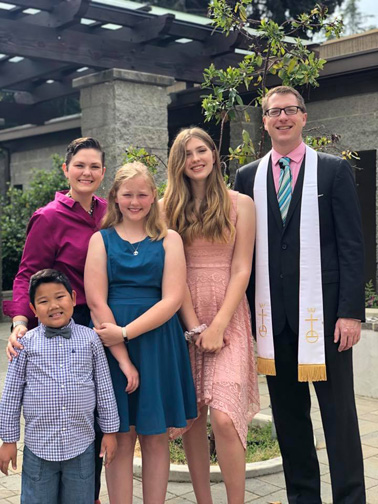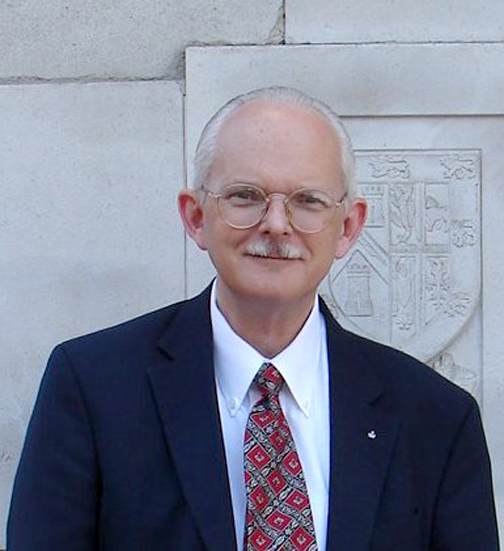Question: Our daughter Teresa just experienced her third miscarriage and is inconsolable as is her husband Tom. They had made plans to have a family even before they were married. We’ve cried with them and always made time to listen. They have been to many specialists to resolve whatever the problem may be and have not had any helpful diagnosis. If they must they will adopt, but their first and deepest desire is to have their own children.
We’ve run out of things to say and to comfort them. Our church has been live streaming and not meeting in person. We watch the live streaming together. Church has been a big help for us at this time. What else can we say or do?
~Almost Grandparents
Dear Almost Grandparents,
The grief that is experienced with miscarriage is deep, not just in the loss of life but also in the loss of the hoped-for future and the joys that come from parenting.
I think the first step is to name this loss, to feel this loss and to share in this loss with loved ones. It is an act of faith to express our grief and know that God does not turn away from us, but instead comes to comfort us.
The stories in Scripture of the many women who were unable to conceive yet found themselves blessed by God might encourage your daughter. Sometimes that blessing came in the form of miraculous intervention but often was in the simple truth that God will not turn away from those whose future hope has turned into despair.
I believe that God works with all things to bring good – specifically in redeeming our losses toward greater love. I am encouraged that adoption is being considered. I am the father of two biological daughters and one adopted son from Korea. Before he came home, I was afraid that my love for him would be different – lesser – than my love for my girls. I am happy to say I was wrong!
As I have come to know other families that formed through adoption, the same is true. Whether domestic or international, their kids are their kids in every way. And this love extends to extended family: uncles and cousins and grandparents love my son deeply.
Since you have been seeking out specialists to help address the concerns, I want to encourage them to also seek out adoptive families, learn from their experiences and consider taking the next step in the adoption process. To that end, I would be happy to talk more in person over a cup of coffee.
My hope is that your family sees how God is already at work to redeem and restore your hopes.

Rev. Kyle Sears
kylesears@lacanadachurch.org
Dear Almost Grandparents,
I cannot imagine the heartbreak your family is going through. I did some research on this because I wanted to share the best information I could. No doubt you have done all the “right” things with this situation in trying to console your daughter and husband … talked, listened, cried, hugged each other, just been there for them. Sometimes you just have to keep breathing and remembering that, when the time is right, good things will happen. This is a time when you stand in faith and trust in God that there is divine order and divine right action in the Universe, and in our lives, even though the appearances are otherwise.
In “You Can Heal Your Life” by Louise Hay, she states that a miscarriage is fear of the future and inappropriate timing. She provides affirmations to repeat. Louise’s basic premise is that you have to love yourself to heal all illness. Your thoughts and words are very powerful tools.
Other sources/books I found are “Peace from Broken Pieces” by Iyanla Vanzant; “Sacred Woman” by Queen Afua; “Anatomy of the Spirit” by Carolyn Myss; and “The Alchemy of Life” by Allyn Boucher. A website I found is soulmamajourney.com. It appears to be supportive of those dealing with motherhood issues. One other suggestion is “The Five Stages of Grief” by Elisabeth Kubler Ross and David Kessler. I hope these resources will be of some help to your family.
Regardless of what you read or support groups you may go to, the bottom line is staying in touch with your faith. Through your faith you can find peace of mind in your heart and soul. We don’t always know why life happens as it does. We don’t always have the right answers but with faith, trust, love and gratitude we can survive the heartbreaks that happen and come out stronger.
To share my favorite Willie Nelson quote, “You don’t get over it, you get through it.” And that takes time.
Many heart hugs to your family, with prayers for peace and acceptance, and with grace and love,

Laney Clevenger White, RScP Emeritus
laneycl@ca.rr.com
Question: Over the past year, I’ve sent two wedding gifts, three baby gifts for showers that were held virtually and two graduation gifts. Out of these, I’ve only received one “thank you.” It’s not so much the thank you as it is knowing the gifts were received.
Have times changed? I always send a thank you regardless. This all started when I was a child and my parents had my brother and me always write a thank you for each and every gift. My parents set a good example because they did as well and often helped us with what to write.
My concern is that perhaps there are those who no longer think this is necessary. What is your thinking about this? ~ Puzzled
Dear Puzzled,
I can very much understand your anger, disappointment and even hurt at not receiving a thank you for the gifts you have given. Sometimes such things can make us feel that both the gift and ourselves are undervalued and unappreciated. I agree it would be lovely if everyone were raised to at least say thank you. But that is not the case and probably never will be in this world. Sometimes human beings can behave in ways that are either, intentionally or unintentionally, thoughtless, uncaring and insensitive.
A number of years ago, when I was a poor college student, I ran into a classmate who was so depressed he hadn’t felt like eating for a couple of days. To compound that, now that he felt hungry he didn’t have money for a meal. On hearing this, I invited him to lunch as my guest even though buying him lunch was a major financial sacrifice for me at that time. Afterwards he left without even saying thank you. Considering the sacrifice, I felt hurt, outraged and resentful.
Eventually I recognized that when people are depressed they can be so self-focused and self-absorbed in their own internal suffering they may be incapable of acknowledging and even appreciating a kindness shown to them. What I interpreted as rudeness and a personal slight was, in fact, nothing more than a sad and crippling limitation on their part. As human beings, we are all flawed at times. We all can come across as insensitive, selfish and uncaring. So how do we get ourselves to the point of acceptance and forgiveness over what has happened? How do we deal with it so it doesn’t close our heart to giving to others, much less upset our peace of mind or sense of self worth?
Ernest Holmes, founder of the Science of Mind, once said if we wish to change our experience of the world it always begins with a change in our mind, in our perspective, in our attitude. Here are a few points to help you alter your perception in hopes it will provide you with some comfort:
Holmes believed that, at the core of it, behind all illusion to the contrary, ultimately God is the giver of all gifts, who will meet every need when asked. In the old hymn “Come Thou Font of Every Blessing” there is the great line reminding us that God is continually pouring forth “streams of mercy” (i.e. grace and forgiveness) never ceasing.” Saint Bernard tells us that grace is nothing more than that which is freely given to us without obligation. Indeed, if we had the eyes to see, in spite of all the sham, dross, predation and lack in the world, the world is still filled with wondrous and marvelous examples of continuing gifts of grace (blessings) pouring down upon us all, never ceasing. The divine pours its grace upon us without ever requiring, expecting or even hoping to receive a thank you.
Likewise, whether we believe it or not, we are each chosen and destined to be God’s agents for good in this world. He does for us only what He does through us. When any divine gift is given to us or another it is always through the agency of a person in some way or form. In other words, God sometimes uses your hand to bless another … whether that person may seem in need or not, deserving or not, grateful or not. There is always a reason for the gift and we may not always be privy to the reason. Often times we fail to recognize this important role each of us plays in delivering God’s gifts to His own creation. Instead of the beggar, we are given the opportunity to become the divine giver.
To put it another way, God is the giver; we are merely the errand boy or girl.
It is always lovely to receive a tip at the point of delivery in the form of a thank you. But if we don’t, let our role in all this be an act of gratitude on our part for the privilege of being chosen as a channel for the divine gift. Let it be our own return “thank you” to the Father for the good we may have received in our life, especially when it was needed.

Anthony Kelson, RScP
anthony@apkelson.com
Dear Puzzled,
I am sad to say this, but I am thinking that people have changed and it is a sign of the times.
I was raised the same way as you. I found it to be a rewarding activity to sit down and write thank you notes. As I got older, I remember someone at a family gathering say, “If someone thanks you in person, there is not a need to send a thank you note.” This was news to me.
Overall, many of us interact less directly with people in person due to busy schedules, different lifestyles, social media and recently even COVID. I have noticed that the same people raised to send thank you notes, who also raised their children to do so, often now text, email, post a picture of said item on social media with a thank you, or call (even phone calls have become scarce).
These forms of interactions have now become normal even in the workforce – even therapists and physicians text. With all this said, and sad to many people, it is an objective fact.
One way to address the issue when you are the sender is to contact the recipient of your gift and ask if they have received it as you are worried maybe something happened to the item (which is possible). Keep the conversation uplifting and avoid a passive aggressive tone.
And, on your end, keep up the thank you notes – you just might keep the tradition going with certain individuals by modeling this behavior.

Rev. Kimberlie Zakarian
kimberlie.zakarian@gmail.com
